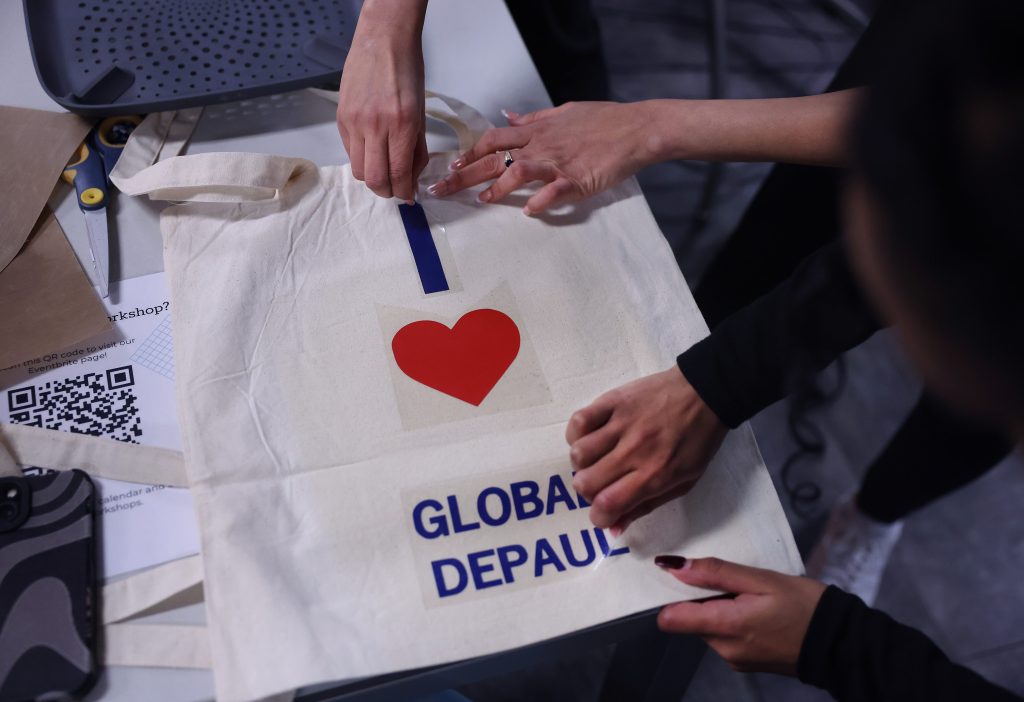DePaul University is immediately reducing operating spending following a 30% drop in international enrollment, school officials told faculty Tuesday.
Cost-cutting measures may include a hiring freeze, executive pay cuts and discretionary spending limits. The exact amount of the reduction is yet to be determined, according to a Tuesday email from DePaul President Robert Manuel obtained by the Tribune.
Overall, there are 755 fewer international students enrolled compared to last fall, Manuel said. The drop was even steeper for first-year international graduate student enrollment, which declined by nearly 62%.
The announcement comes amid a wave of heightened scrutiny of international students at higher education institutions under President Donald Trump. Increased visa vetting and travel bans have created a maze of obstacles for foreign students seeking to study in the U.S. — leading many universities bracing for enrollment declines.
“Significant shifts in the higher education landscape continue to create a palpable sense of fear and anxiety in our community,” Manuel wrote. “These concerns are so severe and debilitating that it’s getting hard to recognize higher education anymore.”
Other factors are squeezing DePaul’s budget, Manuel said. Student financial aid has increased significantly, and now is expected to cost the university roughly $7 million above budgeted levels. Higher healthcare costs are also adding strain — overall benefit costs have grown by $23 million over the past five years. Additionally, non-international undergraduate enrollment has dropped by roughly 300 students.
Those pressures are expected to extend into the 2027 fiscal year, according to Manuel.
“We must act with urgency to manage the questions and challenges presented by new federal policies and rising costs that are directly affecting us now,” he said.
Manuel attributed the international enrollment drop to students facing challenges obtaining visas and losing interest due to those federal changes. Last year, DePaul enrolled 21,210 students, about 11% of whom were international. In a statement to the Tribune, the university said it was making spending cuts “to be good stewards of our resources.”
“As we make these adjustments, we will prioritize the student experience, ensuring that we preserve the high-quality academic programming that defines a DePaul education,” the statement said.
About 1.2 million international students studied in the U.S. during the previous academic year, including 62,000 in Illinois, according to the National Association of International Educators.
Most universities are expected to release enrollment data later this fall. But in July, NAFSA predicted a 30 to 40% decline in new international enrollment — costing the U.S. economy $7 billion. Last month, the University of Illinois Chicago said that its international graduate enrollment had declined 9.6%, or about 216 students.
As Trump restricts foreign students, he has cited national security concerns and competition for admissions slots with Americans. In April, his administration abruptly revoked and later restored the visas of more than 1,000 international students across the country.
Student visa interviews were also paused from late May to mid-June, peak issuance season. Later, the U.S. State Department announced a social media vetting process to identify “those who pose a threat to U.S. national security.” Overseas, there are reports of limited or no appointments available at international consulates, according to NAFSA, including India and China.
At DePaul, the vast majority of international students hail from India, roughly 1,500 students, followed by Pakistan and China.
Last month, the Trump administration also announced a new $100,000 fee for H-1B visas, the primary employment pathway for foreign professionals. The change will significantly reduce employment prospects for international graduates, experts say, acting as another deterrent to studying in the U.S.
Originally Published: October 3, 2025 at 6:13 PM CDT
